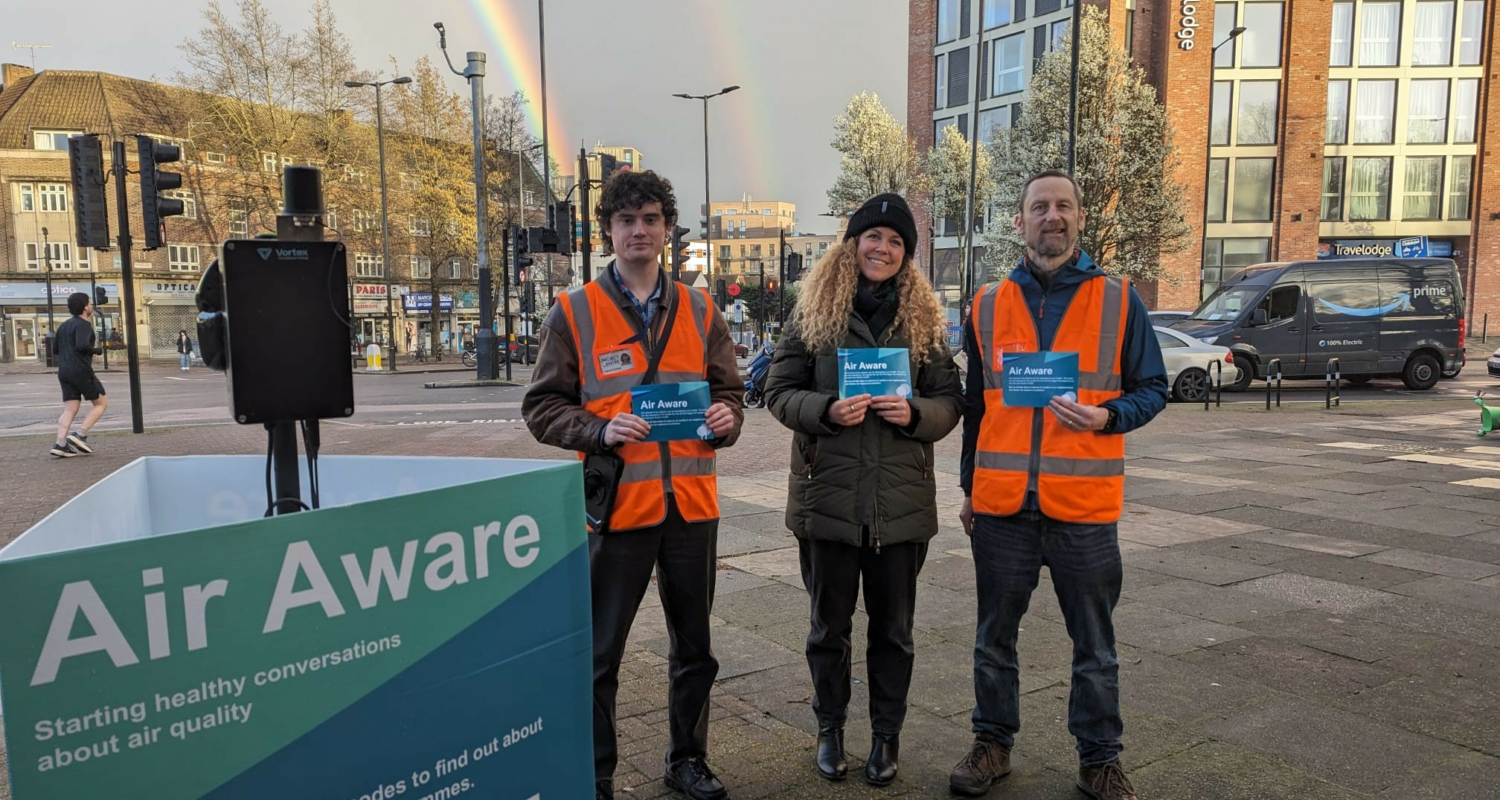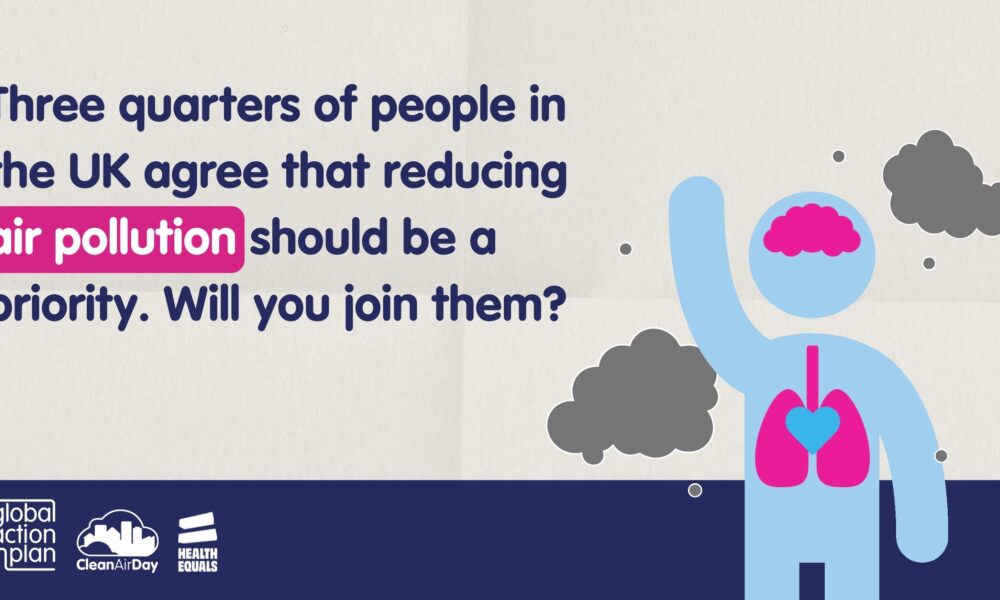Engaging communities for cleaner air
As we mark Clean Air Day, we proudly highlight the significance of engagement and behaviour change to make a tangible difference in the fight against air pollution.
Scott Sutton - 20 June 2024

Overview
Clean air is a fundamental right, yet achieving it requires effort from all sectors of society. Central to this effort are engagement programmes that foster meaningful participation, drive behaviour change and leverage hyperlocal air quality monitoring.
In this blog, we’ll delve into the transformative power of community and stakeholder engagement bolstered by localised air pollution data. When harnessed effectively, this data can be a game-changer in our quest for cleaner air and healthier communities.
The importance of meaningful engagement
Meaningful community and stakeholder engagement are vital for driving behaviour change. When communities are genuinely involved in decisions that affect them, trust, credibility and a sense of ownership are built. This ownership, in turn, creates advocacy and drives behaviour change. The International Association for Public Participation (IAP2) framework, a widely used tool in Australia, Canada, the US and increasingly in the UK, provides a clear structure for effective public participation, enhancing the value of community engagement.
A compelling story that resonates with people is crucial for the success of any engagement programme. Local authorities must create bold, meaningful visions and consistently communicate these throughout the project lifecycle. This is particularly important in the face of opposition or misinformation. By maintaining a consistent narrative, authorities can counteract negative rhetoric and keep the community aligned with the project’s goals.
Models of engagement
Various engagement models exist, but the essence of effective public participation is consistent across them all: it is crucial for the success of projects, particularly in sectors like transport, the environment and health. Meaningful engagement ensures that communities are not just passive recipients but active participants in shaping their environment.
One effective strategy is to amplify the voices of the volunteering community sector. The UK is fortunate to have diverse community groups, from environmental organisations to sports clubs and theatre groups. These groups demonstrate inclusion and, while not always directly involved in environmental projects, play a crucial role in the community. Engaging with them not only expands the reach of our efforts but also enriches our policies and projects with a variety of perspectives.
Integrating hyperlocal air quality data
Hyperlocal air quality monitoring is crucial in engaging communities and driving behaviour change. Why is often the question that gets asked, but it provides real-time, localised data on air pollution, making its invisible hazards visible and actionable. This approach is particularly effective when integrated with community engagement and public awareness campaigns.
Hyperlocal air quality monitoring offers detailed insights into air pollution at a granular level. Unlike traditional monitoring systems that provide broader regional data, hyperlocal monitors capture the variations in air quality within specific neighbourhoods, streets, or even blocks. This detailed data can be crucial for local authorities in several ways:
- Targeted interventions: By identifying pollution hotspots, local authorities can implement targeted interventions where they are most needed. For instance, if data shows high NO2 levels near a school, authorities can prioritise measures like restricting traffic during school hours or promoting clean air zones around the school.
- Real-time decision-making: Real-time data allows for immediate action. During high pollution events, local authorities can issue alerts to the public, advise on protective measures, and adjust traffic or industrial operations to mitigate exposure.
- Policy validation: Continuous monitoring helps validate policies and interventions' effectiveness. For example, if a low-emission zone is implemented, hyperlocal monitoring can show its impact on reducing pollution levels over time.
Case Study: Citizen Science in London Boroughs
An exemplary project illustrating meaningful engagement and hyperlocal air quality monitoring is the citizen science initiative across several London boroughs. Project Centre and Vortex launched the project with Hackney Council in March to train residents as “air quality champions,” using Vortex’s air quality monitors to gather data in their neighbourhoods. These champions decide where to monitor, whom to engage and how to shape the campaign. This empowerment leads to broader community awareness and engagement, fostering a collaborative effort towards cleaner air.
This empowers residents to analyse air pollution data and make informed decisions to protect their health. For instance, they might choose to avoid busy roads at certain times of the day or opt to exercise in the park during periods of lower pollution.
Integrating behaviour change programmes
Behaviour change programmes are essential for preparing communities for upcoming projects. Local authorities often consider these programmes as complementary measures implemented after infrastructure changes. However, aligning these programmes with project timelines prime communities for the changes, maximising the impact. For instance, air quality monitors in areas slated for new infrastructure can raise awareness and build support ahead of the project’s implementation.
A practical example of meaningful engagement, behaviour change and hyperlocal air quality monitoring is pedestrianizing a high street in a local authority area and transforming a traffic-heavy street into a pedestrian-friendly public space, which involves extensive community consultation and participation. Events like World Car Free Day, where the community experiences the benefits of a traffic-free environment, help reinforce the vision and gather support.
Conclusion
Engagement programmes, behaviour change initiatives and hyperlocal air quality monitoring are pivotal in the journey towards cleaner air. By genuinely involving communities, amplifying diverse voices, integrating behaviour change efforts strategically and leveraging real-time data, we can drive significant, lasting change.
For Clean Air Day, Vortex and Project Centre are proud to highlight the importance of these efforts. Join us in our commitment to cleaner air and healthier communities. Let's make every day a Clean Air Day. Start your clean air project with the first step, monitoring: https://vortexiot.com/contact
More blogs

Should clean air be a national priority?
Millions across the UK are still exposed to harmful levels of air pollution every day. As we mark Clean Air Day, it’s time to ask: if clean air impacts our health, our…

Tackling domestic wood burning for healthier communities
Take a look at how domestic burning significantly impacts air quality, posing risks to public health and the environment.